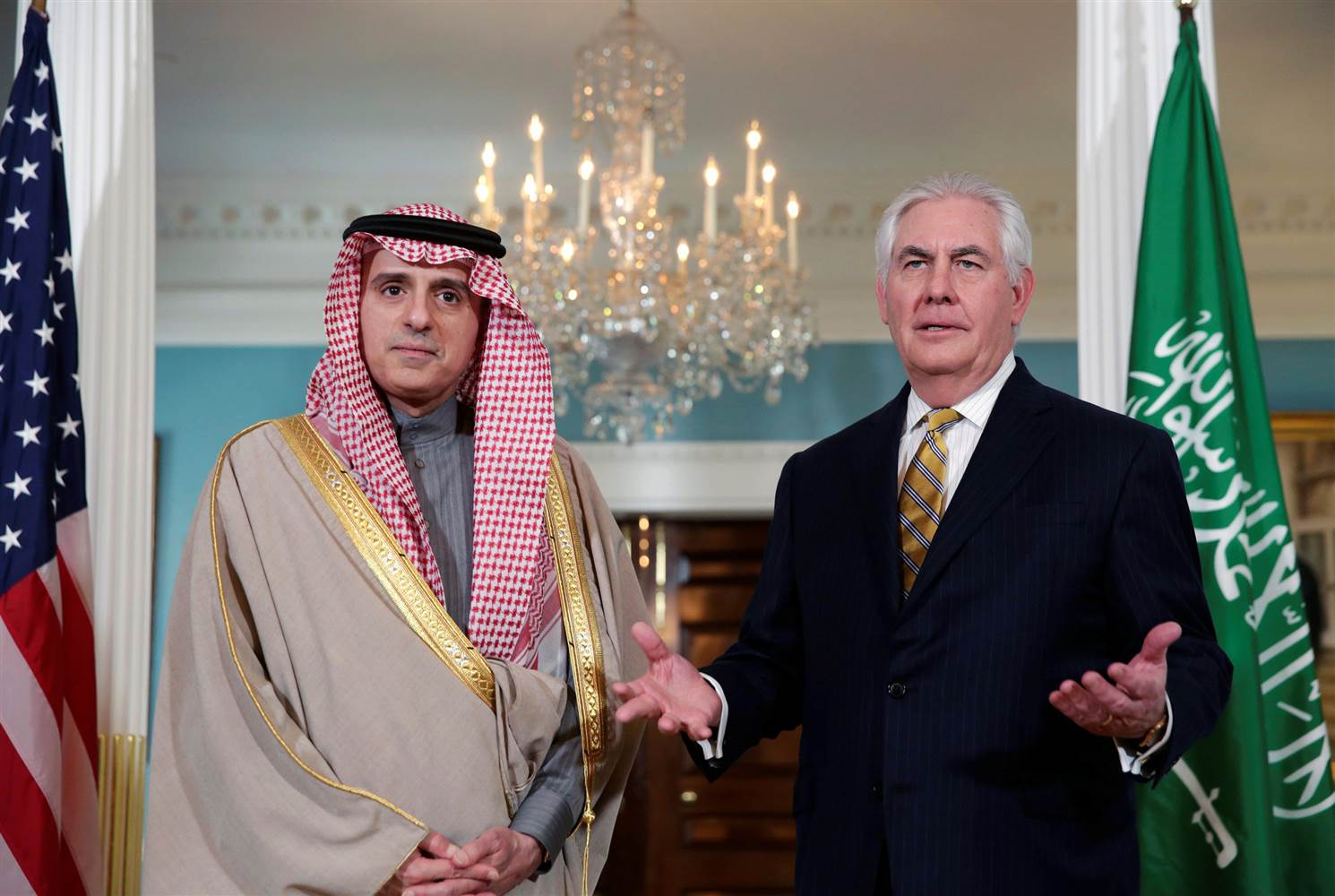
TOO LITTLE TOO LATE?
Saudi Arabia and the US look to claw back influence in Iraq

US Secretary of State Rex Tillerson will join Saudi King Salman and Iraqi Prime Minister Haider al-Abadi in Riyadh today for the inaugural meeting of the Saudi-Iraqi Coordinating Council.
The council is part of a broader strategy by Mr Abadi to stave off Iran’s influence in the country by encouraging a national Arab identity.
Saudi Arabia’s began clawing back influence in Iraq back in February with the arrival of their top diplomat in Baghdad– the first trip its kind in 27 years–to open the Arar border crossing. Since then Riyadh has hosted visits from influential Shia cleric Muqtada al-Sadr and Prime Minister Abadi.
Mr Abadi has proven more resistant to Iranian influence than his predecessor and has the support of Iraq’s Shia Ayatollah, Ali al-Sistani, in trying to wrestle back control from Iran. He faces an uphill battle though, as militia leaders loyal to Iran shift into new political groups with designs on contesting the 2018 parliamentary elections.
Expect the US to continue cajoling Saudi-Iraq ties, while promoting unity with secular and Shia factions as they look to strengthen Mr Abadi’s position ahead of next year’s election.
Delve deeper: Iran: Back in the Game
THE OTHER NUCLEAR OPTION
South Korea to resume building two nuclear reactors

A commission that yesterday recommended the government resume the $7.5 billion construction of two nuclear reactors will disband today. The recommendation flies in the face of President Moon Jae-in’s campaign promise to shift the nation’s energy policy away from nuclear power in favour of natural gas and renewables.
South Korea boasts the sixth-largest nuclear energy program in the world; nuclear isotopes generate one-third of the country’s energy—coal accounts for around a third of the energy mix and renewables less than 7%.
Mr Moon says he will abandon plans for new reactors, citing public safety in the wake of Japan’s Fukushima disaster. This position has been heavily criticised by local industries, who fear low investment would hamper South Korea’s competitive edge in this sector.
Expected to endorse the decision next Tuesday, Moon is bound to experience a blow to his credibility for backtracking on this key issue.
DOWN BUT NOT OUT
Democrats debate party’s future direction at Vegas Summit

Members of the Democratic National Committee, the US party’s governing body, will conclude a three-day summit today. Delegates hope to chart a unifying course for the divided party ahead of midterm elections due next year.
Still bruised from last year’s election, which saw the party split between supporters of Bernie Sanders and Hillary Clinton, the Democrats lack a clear message. Many point to the new Chairman Tom Perez, under whose leadership the party has failed dismally to raise funds. His recent dismissal of veteran members has only exacerbated the intra-party rift.
Today, the Committee is set to vote on a resolution calling the now-independent Sanders to run as a Democrat in next year’s mid-terms—a move that may deepen bitter rivalries.
HAPPENING ELSEWHERE…
Spain’s government to invoke direct rule over Catalonia

The Spanish government is expected to suspend Catalonia’s autonomy and impose direct rule on the restive region. In an emergency meeting, the cabinet is expected to invoke article 155 of the constitution, which will require a majority of votes in the upper house. The move will likely be met with protests in the Catalan capital of Barcelona, possibly sparking a repeat of the violence that flared during the October 1 independence vote.

